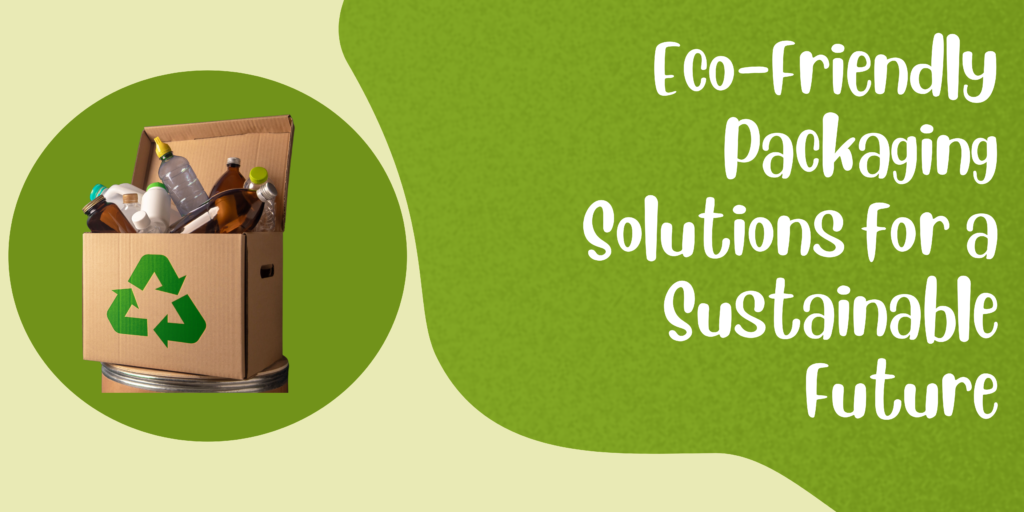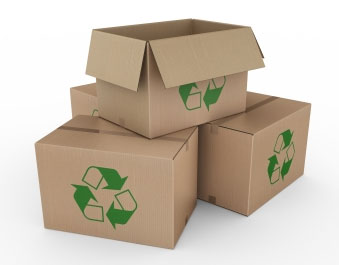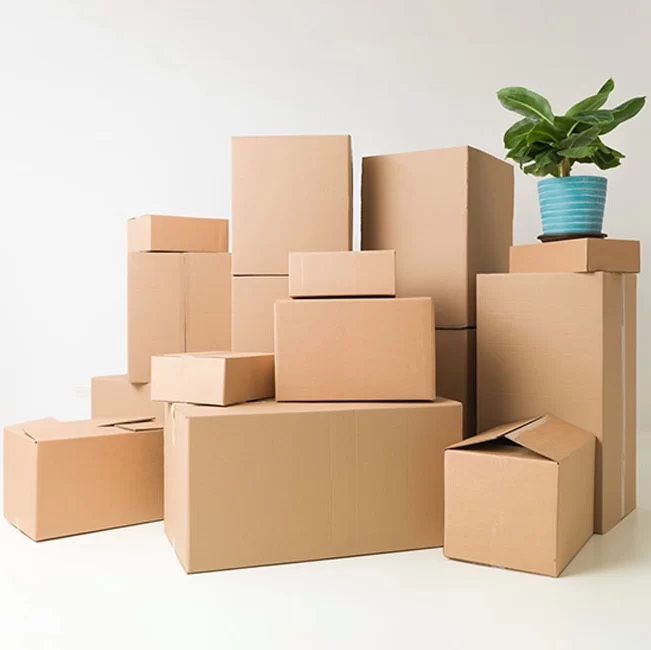-

-
Mon-Fri 9:00 to 5:30

 Mon-Fri 9:00 to 5:30
Mon-Fri 9:00 to 5:30

In a world increasingly focused on sustainability and environmental responsibility, the need for eco-friendly packaging options has never been more critical. As consumers become more conscious of their environmental impact, businesses are striving to offer products that align with these values. This blog post will compare and contrast different products and services related to eco-friendly packaging, specifically focusing on recycling cardboard, sustainable packaging solutions, and biodegradable cardboard boxes for a sustainable future. By the end of this article, you’ll have a clear understanding of which option suits your needs best.
Recycling cardboard is one of the most widely adopted practices when it comes to sustainable packaging solutions. Here, we will explore the benefits and limitations of using recycled cardboard.

Using recycled cardboard reduces the need for cutting down more trees, conserving natural resources and preventing deforestation. This process plays a crucial role in reducing the environmental footprint of packaging materials.
The production process of recycled cardboard consumes significantly less energy compared to creating new cardboard from raw materials, reducing greenhouse gas emissions. This reduced energy consumption is a significant advantage in terms of environmental impact.
Recycled cardboard is often more affordable, making it an economically sensible choice for businesses looking to go green. Companies can reduce packaging costs while contributing to environmental sustainability.
Many regions and countries have regulations and incentives in place to promote the use of recycled materials, which can benefit businesses that choose recycled cardboard.
Recycled cardboard may not be as sturdy or aesthetically pleasing as new cardboard, which can be a drawback for some businesses. While the quality has improved over the years, it may not be suitable for all packaging needs, particularly for fragile or high-end products.
Customization with recycled cardboard can present challenges due to its pre-existing state. Achieving vibrant colors and intricate designs might be limited when compared to using new cardboard. This limitation stems from the inherent characteristics of recycled materials, which may not offer the same level of flexibility in terms of branding and design elements. Businesses should consider these constraints when opting for recycled cardboard as a packaging solution.
Sustainable packaging solutions encompass a broader range of materials and practices beyond just cardboard for a sustainable future. Let’s delve into the advantages and drawbacks of sustainable packaging options.
Sustainable packaging can be crafted from a variety of eco-friendly materials like bamboo, cornstarch, and hemp, providing businesses with versatile options. This diversity allows companies to choose materials that align with their specific sustainability goals and product requirements.
Using innovative and sustainable materials can enhance a company’s eco-friendly image, attracting environmentally-conscious consumers. Consumers today often prefer brands that actively engage in sustainable practices, making sustainable packaging a valuable branding strategy.
Sustainable packaging materials often have a lower carbon footprint compared to traditional packaging options. This reduction in environmental impact can be a significant selling point for eco-conscious consumers.
Sustainable materials often lend themselves to innovative packaging designs, helping products stand out on the shelf and leave a lasting impression on consumers.
Sustainable packaging, while beneficial for the environment, often comes with a higher price tag than traditional materials. This expense can be a hurdle for businesses, particularly smaller ones with limited budgets. However, it’s essential to view this as an investment in the sustainable future. The long-term cost savings, coupled with the potential for increased sales due to an enhanced brand image, can offset the initial expenditure in sustainable future.
Not all sustainable materials are universally available or suitable for every product. Businesses may need to invest time and effort in researching and sourcing the right materials to align with their specific packaging needs. This limitation can require careful planning and may pose challenges for companies looking to make a swift transition to sustainable options.
Sustainable materials can exhibit varying levels of durability. While some eco-friendly materials match the strength of traditional packaging, others may not be as robust. This diversity can be a concern for businesses that ship delicate or heavy items. Careful consideration is required to ensure that the chosen sustainable materials can adequately protect the products during transit in the sustainable future.
Biodegradable cardboard boxes offer a blend of eco-friendliness and practicality. Let’s explore the pros and cons of this option.

One of the most significant advantages of biodegradable cardboard boxes is their eco-friendliness. These boxes are designed to break down naturally, reducing landfill waste and minimizing harm to the environment. Unlike conventional packaging materials that can persist in landfills for years, biodegradable cardboard boxes decompose into natural substances. This process leaves no lasting impact on ecosystems, making them a responsible choice for businesses committed to environmental sustainability.
Biodegradable cardboard boxes offer a remarkable degree of customization. These boxes can be tailored to suit a business’s branding needs while still adhering to eco-friendly principles. Companies find that they can achieve their desired branding and design elements using biodegradable materials without compromising on aesthetics or functionality. This flexibility allows businesses to maintain a consistent brand image while contributing to their eco-conscious image.
Many consumers actively seek out products with biodegradable packaging, and this growing trend represents a significant marketing advantage for businesses. By using biodegradable materials in their packaging, companies can attract a broader customer base that values environmental sustainability. This consumer appeal can lead to increased sales and brand loyalty, as consumers align themselves with brands that share their commitment to protecting the environment.
In response to the increasing focus on sustainability, several regions and industries have implemented regulations and standards related to packaging materials. Biodegradable cardboard boxes often meet or exceed these requirements, ensuring that businesses remain in compliance with relevant laws and regulations. This compliance not only reduces the risk of legal issues but also demonstrates a commitment to responsible business practices.
Biodegradable cardboard boxes often come at a higher price point compared to their traditional counterparts. This added cost can be a significant concern for businesses, especially those with tight budgets. While adopting biodegradable packaging is an eco-conscious choice, companies must consider the impact on their pricing strategy. It’s crucial to strike a balance between sustainability and cost-effectiveness.
Biodegradable materials, while environmentally friendly, may not possess the same level of sturdiness as conventional cardboard. This disparity in durability can pose challenges, particularly for businesses that ship fragile or heavy items. It’s imperative for companies to conduct thorough assessments to determine whether the durability of biodegradable options aligns with their specific product needs. For some businesses, additional protective measures may be necessary to ensure the safe transit of goods.
The availability of biodegradable packaging materials can vary significantly depending on the region and market. In some areas, sourcing these materials may be straightforward, while in others, it may prove challenging. Businesses looking to embrace biodegradable packaging need to invest time and effort in researching and sourcing the right materials. This limitation requires careful planning to ensure a consistent and reliable supply of biodegradable packaging, which can be especially critical for larger operations.
Biodegradable packaging may not yet be well-understood by all consumers. Businesses need to invest in educating their customers about the benefits of biodegradable materials and their role in environmental conservation. This education and communication process can be time-consuming and require additional resources.
While biodegradable materials break down naturally, the effectiveness of this process can vary based on environmental conditions. It’s crucial for businesses to educate consumers about the proper disposal methods for biodegradable packaging to maximize its environmental benefits. Additionally, businesses must ensure that their packaging is disposed of correctly, potentially requiring coordination with recycling and waste management facilities.
In the quest for eco-friendly packaging solutions, businesses have several choices, each with its own set of advantages and drawbacks. Recycling cardboard is a reliable and cost-effective option, but it may lack customization and quality in some cases. Sustainable packaging solutions offer versatility and a positive brand image but can be costlier. Biodegradable cardboard boxes are eco-friendly and customizable but may be less durable and come at a premium price.
Ultimately, the choice between these options depends on your business’s specific needs, budget, and commitment to sustainability. Whichever option you choose, it’s clear that the demand for eco-friendly packaging solutions is on the rise, and embracing these practices can help your business thrive in an environmentally conscious world for a sustainable future.
As the world continues to prioritize environmental responsibility, the importance of eco-friendly packaging solutions cannot be overstated. By considering the advantages and drawbacks of recycling cardboard, sustainable packaging options, and biodegradable cardboard boxes, businesses can make informed decisions that benefit both their bottom line and the planet. It’s a step toward a sustainable future where packaging plays a vital role in reducing our ecological footprint and preserving the planet for future generations.
